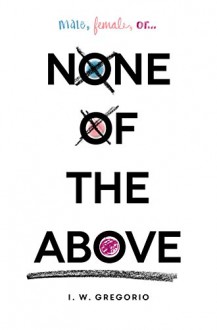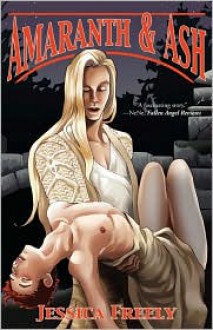
I picked this up because I’m confused by the whole concept of nonbinary gender identities (don’t most people vary in some way from the stereotypes of their gender?), and so I’m trying to read about it. This book taught me something about intersex, though nobody in it uses non-standard pronouns, but more than that it’s about the author’s sexcapades, a bit about her childhood, and a platform for half-developed arguments.
This short book is a collection of very short (typically 2-3 pages) personal essays, from the perspective of a queer activist who lives in San Francisco and has a lot of sex. And I mean a lot. Sex parties, S&M, exhibitionism, threesomes – if you want a bunch of descriptions of an adventurous sex life, some of them graphic, this is your book. Attending sex parties seems to have been the author’s primary after-work activity for a good chunk of her life, and that chunk gets a lot of focus here.
She starts talking about intersex about halfway through the book, where it turns out the author is not in fact intersex by the most common definition: someone born with ambiguous genitalia. She is physically a woman, though as a child she developed a minor, borderline version of a hormone disorder (Congenital Adrenal Hyperplasia) that can cause intersex in girls, but she had hormone treatment that forestalled the most noticeable effects. As an adult and an activist, she was recruited into intersex activism, and reasoned that:
Here is a seemingly tailor-made issue for me: it’s about sex, it’s about breaking down boundaries, and it’s cutting edge – because who else do I know working on this issue?
So then she decides to start identifying as intersex and advocating for that group’s issues. Which I’m glad to have learned a bit about. Based on this book, intersex activism seems to be primarily focused around preventing doctors from performing medically unnecessary plastic surgery on the genitals of infants born intersex. Hillman’s opposition to this is based on first, her belief that people’s natural bodies and genitals are beautiful and that she feels cheated out of her natural body by the hormone treatment she received as a child, and second, the fact that many of her intersex friends lost feeling in their genitals, and/or the ability to experience orgasm, due to the surgery done to them as babies.
This is of course a terrible result, but I wanted to know more: how often do the surgeries go wrong in this way? (After all, lots of transgender people choose to have surgery on their genitals.) And I think the author, living in a queer enclave where having a threesome with her girlfriend and a transgender woman with a penis at a sex party is just your average Tuesday night, doesn’t recognize that for most people, there is significant value in being physically normal. Not everyone has either the opportunity or the desire to live a life like hers. And it’s easy for her to say – as an adult in her milieu, and having had childhood medical intervention – that she wishes she’d had her natural body. She might have felt very differently if she had in fact gone through puberty at age 6, grown body hair and had a maximum height of under five feet. Now even if the risks are low, it sounds like surgery should wait until the patient is old enough to weigh the risks and make an informed personal decision, but I don’t buy Hillman’s simple anti-medical-intervention stance.
Finally, while the writing is good and at first I felt it showed a generosity of spirit, at later points I questioned whether she was hiding pettiness behind a socially unassailable exterior. She uses one essay to settle scores with a woman who invited her to a party and then decided she didn’t want a date; another to insist that she made a thoughtless joke offending another conference attendee because “I simply just misunderstood” the situation, and not deliberately or just thoughtlessly; and she writes condescendingly about her parents, forever surprised when they understand her or do anything right.
At any rate, overall I did learn a bit from this book, which is well-written, short, and kept my attention pretty well for the most part. But it’s not one I would recommend.

 Log in with Facebook
Log in with Facebook 








